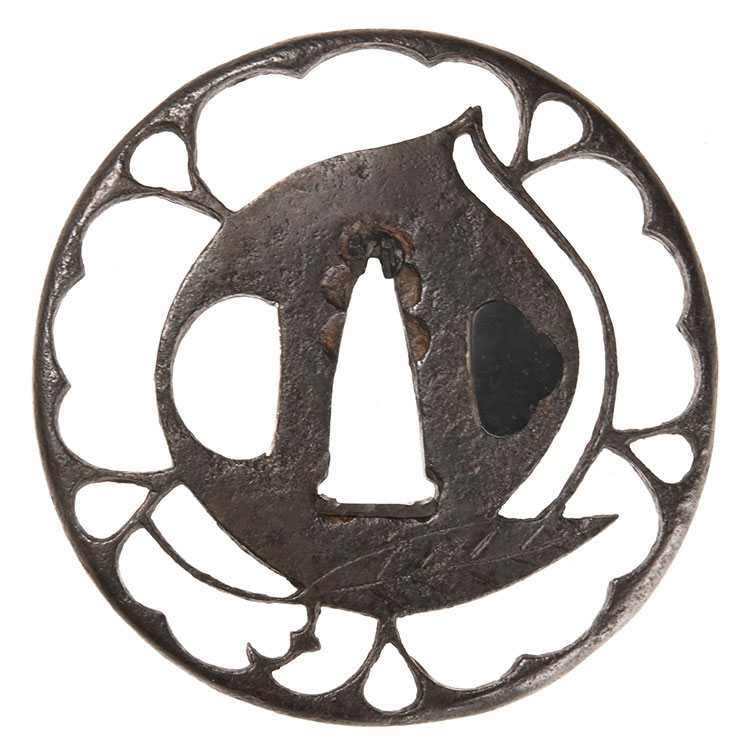
特別保存刀装具Tokubetsuhozon Tousougu
古赤坂鍔 Ko-Akasaka Tsuba
No.014783古赤坂 桃透鍔Ko-Akasaka Momo(Peach) Sukashi Tsuba
ご成約Sold
- 極めKiwame
- 古赤坂 Ko-Akasaka
- 時代Period
- 江戸時代Edo period
- 法量Size
-
縦 7.83cm 横 7.70cm 切羽台 0.76cm 中心孔縦 2.6cm 中心孔横 1.2cm 重量 109.7g
Length 7.83cm Width 7.70cm Seppadai 0.76cm Nakaoana-Length 2.6cm Nakaoana-Width 1.2cm Weight 109.7g
- 国Country
- 武蔵Musashi
- 説明Drscription
- 竪丸形 鉄槌目地 地透 毛彫 丸耳 両櫃孔(片赤銅埋)
赤坂派は初代・二代の忠正親子が江戸へ寛永頃移住し、尾張透の手法と京透の工法に工夫を加えて鐔を制作し、幕末頃まで栄えた。初・二・三代(古赤坂)は、鉄地の鍛が良好で造形は丸形、丸耳で厚手のものが多く、角丸風造りも見られる。四代目忠時の頃から鐔もやや薄くなり、精巧な造込となった。赤坂という呼称はこの一門の職人たちの居住地(現在の東京都港区の赤坂一帯)から用いられた。Tatemarugata Tetsutsuchimeji Jisukashi Kebori Marumimi Ryouhitsuana( Kata Syakudou-Ume)
The first and second generations of the Akasaka school, Tadamasa and his son, moved to Edo around the Kan'ei era, where they produced tsuba by adding ingenuity to the Owari-tou method and the Kyo-tou method, and prospered until the end of the Edo period. The 1st, 2nd and 3rd generation (Ko-Akasaka) have good forging of the iron base, and many of them are round and thick with round ears. From around the time of Tadatsuki IV, the tsuba became a little thinner and became more elaborately crafted. The name Akasaka was used from the place where the craftsmen of this family lived (present-day Akasaka area in Minato Ward, Tokyo).


